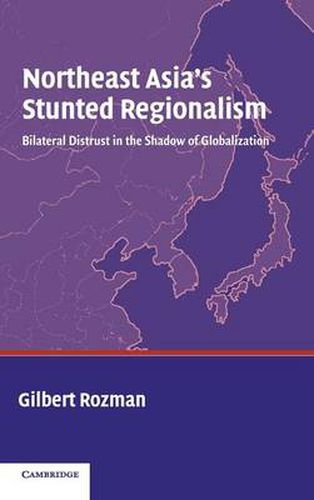Readings Newsletter
Become a Readings Member to make your shopping experience even easier.
Sign in or sign up for free!
You’re not far away from qualifying for FREE standard shipping within Australia
You’ve qualified for FREE standard shipping within Australia
The cart is loading…






A comprehensive picture of the pursuit of regionalism across Northeast Asia in the 15 years following the Cold War. In each of six periods, the main dynamic of regionalism and the problems that slowed regionalism’s advance are identified. The evolving strategies of China, Japan, South Korea, and Russia are examined, emphasizing the importance of bilateral relations while keeping in mind the globalizing US role. By focusing on debates in each country, most rarely covered in English, the book demonstrates how suspicion of neighbors and clashing strategies have undermined aspirations for regionalism. Only by learning the lessons of this transitional era will regionalism be placed on a stable footing. These include: fully embrace globalization while using regionalism for balance, work together in integrating North Korea while recognizing South Korea’s pivotal role, compromise to allow China and Japan to share leadership, and focus on a long-term vision of Northeast Asia.
$9.00 standard shipping within Australia
FREE standard shipping within Australia for orders over $100.00
Express & International shipping calculated at checkout
A comprehensive picture of the pursuit of regionalism across Northeast Asia in the 15 years following the Cold War. In each of six periods, the main dynamic of regionalism and the problems that slowed regionalism’s advance are identified. The evolving strategies of China, Japan, South Korea, and Russia are examined, emphasizing the importance of bilateral relations while keeping in mind the globalizing US role. By focusing on debates in each country, most rarely covered in English, the book demonstrates how suspicion of neighbors and clashing strategies have undermined aspirations for regionalism. Only by learning the lessons of this transitional era will regionalism be placed on a stable footing. These include: fully embrace globalization while using regionalism for balance, work together in integrating North Korea while recognizing South Korea’s pivotal role, compromise to allow China and Japan to share leadership, and focus on a long-term vision of Northeast Asia.